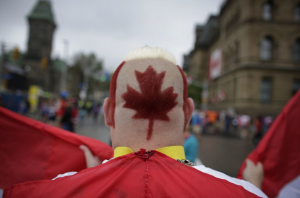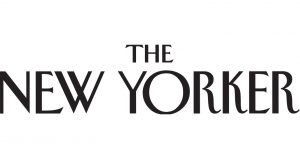By Molly Worthen
The last Presidential election drove many liberals to muse about packing up and fleeing to Canada. Not many actually did so, but Cori Carl had already made good on the fantasy. She and her wife were committed New Yorkers but felt increasingly disillusioned with the “political backlash after Obama,” she told me. A visit to Toronto charmed them. Jobs fell into place, and they moved, in early 2016, after the momentum of the Trump campaign persuaded them that “we don’t want to stick around for whatever’s going to happen,” Carl said. “The conversation and political tide before the election was enough for us to say, ‘You know what, we can move now.’ ”
Carl has embraced her new home with gusto. She’s been scouring bookstores for Canadian histories and recently embarked on a cross-country road trip; when I contacted her, she was driving to Halifax. There should be no better time for newcomers to learn about Canada than the summer of 2017: July 1st marks the hundred-and-fiftieth anniversary of Confederation, one of the biggest milestones in Canadian political history. The 1867 agreement, ratified by an act of British Parliament, created the Dominion of Canada and codified the country’s constitution. It marked a crucial step in the slow process of independence from Britain.
Government branders have dubbed the anniversary “Canada 150.” Canadians are celebrating with public art installations, concerts, a multicultural “parade of nations,” international food festivals, and a giant rubber duck scheduled to dock on Lake Ontario. The Canadian clothing company Roots has launched an ad campaign to celebrate “150 years of being nice,” complete with a nationwide search to find “Canada’s nicest person.”
“In the grocery store, the bread I got was in commemorative Canada 150 packaging, and there are a lot of special cookies,” Carl said. But the festivities strike her as “a very surface-level celebration. It’s vague notions of diversity, rather than really getting into Canadian history.”
In some ways, these cheerful tributes to multiculturalism and good manners are just the dose of Canadian civility that American liberals crave. What a relief it must be to live in a country where the head of government spends his time welcoming Syrian refugees and hugging pandas, when our own President is busy trying to ban Muslim immigrants and bullying critics on Twitter.
But this summer of good feelings conceals a complex debate about what the country stands for and what it means to be Canadian. While Americans fight loudly and publicly over the meaning of our history and founding ideals, Canadians—at least the white, English-speaking majority—have learned to avoid the subject. The relative absence of history from Canadian civic discourse is a testament to just how explosive historical debate can be, and a closer look can show Americans how they often misunderstand culture and politics north of the border.
Image credit: David Kawal/Eyevine/Redux

